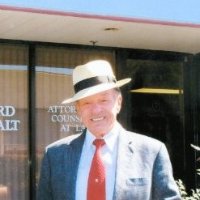BY RAUL HERNANDEZ
During a 2007 murder trial, 11 jurors picked an idiot, who was identified as Juror No. 7, to be the jury foreman.
In the 18 years I was assigned to report on state and federal courts for three different newspapers, I covered more than 120 murder trials, and a few times, attorneys tried to get judges to declare mistrials for jury misconduct.
Juror No. 7 could have been the Poster Boy for Jury Misconduct.

I thought about Juror No. 7 when I read a recent newspaper story about a 72-year-old juror from Florida who was sent to jail for six months for jury misconduct in a high-profile case.
In May, the juror went back to court to beg the judge to reduce the sentence after serving 37 days, citing financial woes and health problems, according to the Sentinel.
Juror No. 7, who thumbed his nose at the court, never spent a day in jail for not following the judge’s instructions.
During the trial in Ventura County, California, Juror No. 7 took a photograph of the murder weapon — a 15-inch, double-edge, saw-toothed knife — and posted it in his blog. He then started giving details to his blog readers about the evidence and testimony while the 2005 murder was in progress.
Juror No. 7 also made comments in his blog criticizing the judge’s staff and complained that the 19-day trial was taking too long.
The Murder Weapon
The murder weapon dangled from the wall on a bungee cord at the house where the slaying occurred, witnesses testified.
 The defendant Robert Michael Ortiz’s lawyer Richard Hanawalt showed jurors a large photograph of the knife during the trial. “I call it a sword. Feast your eyes on this little number,” Hanawalt said.
The defendant Robert Michael Ortiz’s lawyer Richard Hanawalt showed jurors a large photograph of the knife during the trial. “I call it a sword. Feast your eyes on this little number,” Hanawalt said.
Adding, “Everybody in the house liked the knife. Everybody liked to play with this ugly piece of steel.”
Ortiz, a then 25-year-old gang member whose moniker was “Weasel,” used the saw-toothed knife to kill Anthony “Tony” Casillas.

Witnesses testified that the 37-year-old Casillas angrily walked out of the bedroom, cursed about what Ortiz did and slumped behind the couch while he was dying,
Ortiz who was covered in blood returned and started punching him, yelling, “Southside Chiques,” which is the name of a violent street gang, Ventura County prosecutor Chrystina Jenson told jurors.
Hanawalt told jurors that his client, who lives in Oxnard, California, had mental problems and talked to people who aren’t there.
“This is something wrong with his guy. He is a nice guy,” Hanawalt told jurors. “But he starts talking about the darnedest things.”
Hanawalt said the whole thing was an accident.
Jenson and Hanawalt both told jurors that the house was used by gangs to party, sell and use drugs and hang out.
After attorneys learned about the blog, Juror No. 7 was subpoenaed to appear in court in January 2008 where he was questioned under oath. The judge scolded him, and he meekly apologized for posting comments about testimony and evidence.
Brodie said in court that he knows Ortiz will appeal the murder case, and jury misconduct will be “the first issue” an appeals court takes up.
“You have now created an appellant issue by violating the court’s order,” the judge told the juror.
“That was never my intention, and I apologize, again,” Juror No. 7 said.

On his blog, Juror No. 7 bragged that as jury foreman he ran the jury room efficiently, allowing only one person to smoke and cutting the lunch break down to 45 minutes, according to Hanawalt. The blogger compared courtroom lawyers and staff to “Caltrans workers leaning on shovels” while on a construction site, and was critical of a defense witness, the attorney added.
Also, Juror No. 7 had a chat room where a group of people would ask him questions about the trial, said Hanawalt.
Brodie said in court that he had read the blog and found that the juror had a “warped idea” about the criminal justice system. The judge said in court he was upset that the juror criticized the judge’s staff, including the bailiff, and complained that the trial was going too slowly.
Hanawalt said the trial began Oct. 9, 2007 and the jury reached a decision Oct. 25. There were 19 days of trial, and Juror No. 7 began blogging on the first day. A new posting appeared about every third day.
Jenson said she didn’t believe the jury misconduct issue will be successfully appealed.
The judge agreed and denied a motion for a new trial, saying he is satisfied there was ample evidence to sustain a first-degree murder conviction. Although there was juror misconduct, Brodie said Ortiz’s jury wasn’t “substantially biased” as a result of the juror’s actions, and he wasn’t denied a fair trial.
Brodie said he could have sentenced the juror to five days in jail or fined him $1,000, or both. But the judge said would not punish the male juror because the misconduct did not result in an unfair trial.
Ortiz was sentenced to 27-year to life sentence
Florida’s Fool
Fast-forward eight years later in Florida.

A Florida juror who conducted a vodka-drinking experiment during a trial recently wanted a reduction of his nearly six month-long contempt sentence for the misconduct to 37 days of time already served in jail, the Sentinel newspaper reported.
The juror, Dennis DeMartin, said he lost his condo during his time in jail and is now living in government-subsidized housing in Connecticut, according to the Sentinel.
DeMartin “is poor by just about any standard,” DeMartin’s lawyer wrote in court documents, and he suffers from cognitive impairment, heart disease and near blindness in one eye.
DeMartin temporarily lost Social Security benefits during his stay at the Palm Beach County jail, and he will lose them again if he goes back to jail, which will result in the loss of his apartment, according to his lawyer.
DeMartin was a juror in the 2012 drunken driving trial of a wealthy polo mogul accused of causing a fatal accident.
Circuit Court Judge Jeffrey Colbath declared a mistrial after DeMartin had failed to disclose.
Colbath cut DeMartin a break. The judge allowed the 37 days DeMartin already spent in jail to serve as his complete punishment for the misconduct that delayed Goodman’s 2012 manslaughter conviction, according to the Sentinel.
Jury Misconduct Using Social Media
A recent study regarding the use of social media by jurors using data from 1999 and 2010 indicated that at least 90 verdicts in U.S. courts were challenged based on claims of Internet-related juror misconduct, with one-half of those challenges occurring within the most recent two years of the study.
 In 28 of the 90 civil and criminal cases, new trials were granted or verdicts overturned.
In 28 of the 90 civil and criminal cases, new trials were granted or verdicts overturned.
Even where judges declined to declare a mistrial (46 of the 90 cases identified), in three-quarters of the cases they held Internet-related misconduct had occurred, according to the study.
By this evidence it would seem that juror misconduct is rare, as about 450,000 jury trials were conducted in the U.S. during the three-year period from 2008 to 2010.
Although this jury misconduct is rare according to the Harvard Law School study titled “Juror and Jury Use of New Media: A Baseline Exploration,” the misconduct costs taxpayers millions of dollars to retry cases.

